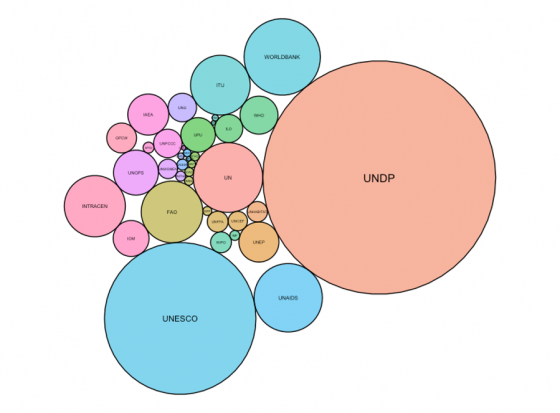At the time when the world was reeling from the devastation of the Second World War, the hopes of the world were placed on the United Nations to ensure that the world never again lives in fear of another world war and “a constant anxiety about peace and the future”. One of the biggest challenges at the time, which has lingered to this day, was to find the solution to the problem of disarmament.
The simple logic to disarmament is that the threat of a future global war is amplified by the accumulation and amassing of arms by states. However, the states amass weapons as an instrument for national safety, for projecting their power in the global political arena, and for performance of international security obligations. Consequently, the complex set of factors, including individual state interests and international geopolitics, complicated the apparent simple solutioning to this problem.
It was then at the 799th meeting of the 14th session of the General Assembly on the 18th September 1959 that the Union of Soviet Socialist Republics representative Mr Khrushchev hinted at an approach, which has largely remained elusive to this day, for addressing such complex global challenges, when he noted:
“All representatives will agree, I am sure, that we must direct the collective intelligence of all States, as of the United Nations, towards the search for a new approach to the solution of the disarmament problem.”
While expressed explicitly, for the second time in the records of the UN, by Mr. Khrushchev, the notion of collective intelligence has always been at the foundation of the UN. The UN charter (e.g., Articles 1 and 13) recognises that it is only through coordinated and harmonised international cooperation that solutions to some of the global economic, social, cultural, and humanitarian challenges can be achieved. This recognition frames collective intelligence as integral to the identity and the modus operandi of the United Nations.
Collective intelligence has been defined as the capabilities for observation, analysis, decision-making, action, and learning that emerge when people work together, supported by tools and technologies. However, collective intelligence is not only motivated by the instrumental goals of enhanced collective wisdom and improved action. It is also undergirded by principles such as epistemic solidarity and humility, mutual commitment, Ubuntu, collaboration, inclusion, dignity, freedom, autonomy, and self-determination - some of which have been articulated as key principles of the United Nations.
In many ways, the world today is very different from the world after the Second World War. Yet we continue to face many complex and interdependent global risks, including climate action failure, biodiversity loss, technological failures, social cohesion erosion, infectious diseases, livelihood crises, and geoeconomic confrontation, which more than ever demand directing the collective intelligence of the world and of the United Nations towards the search for solutions to these challenges.
The world today has also seen major technological advancements in information and communication technologies, such as the Internet, big data, social media, and artificial intelligence, supporting communication, cooperation and collaboration at the global level. Despite the potential of these technological developments to support enhanced global collective intelligence, in many ways, the current health, economic and geopolitical crises remain a testament to the dearth of effective global collective intelligence assemblies for addressing these pressing global challenges.
The UN has continued to recognise the importance of collective intelligence to achieve its purposes. The 2015 Millennium Development Goals report reflected on the importance of “open data … for enabling the use of collective intelligence to make smarter policy decisions, increasing citizen engagement and promoting government efficiency and effectiveness”. The Secretary-General’s Our Common Agenda report foregrounded the need for an interconnected response “to re-embrace global solidarity” and re-invigorate multilateralism for accelerating progress on global commons. These sentiments for broad inclusion and multistakeholder engagement have also been codified in the UN 2030 Agenda for Sustainable Development, through the “Leave no one behind” principles and explicitly through SDG17 “Partnership for the goals”.
The UN has had successes in facilitating global collective intelligence to solve global challenges. Across the UN system, several entities are employing collective intelligence approaches within their programs (and using the associated language within their publications), as highlighted in the chart below. Notably, all the UN funds, programmes, specialized entities, and bodies, make some reference to “collective intelligence” in their publications; with the UNDP and UNESCO making the most frequent reference.

The mandate of the United Nations and the need to enhance global collective intelligence for addressing global challenges remain as relevant and as critical today as when the organisation was launched in 1945. In this time of division, fracture and mistrust, the people of the world continue to place high hopes on the United Nations for addressing the global economic, social, cultural, and humanitarian challenges. Yet the purpose for which the UN was created, for unleashing the intelligence of the global community towards addressing these pressing global issues, has not so far been fully achieved – “the people still live in a constant state of anxiety about peace and about their future.” There remains an urgent need, which the United Nations University Institute in Macau is committed to contributing towards, for enhancing collective intelligence within the UN system and worldwide for addressing the complex global challenges.
In the future blogs in this series, we will unpack some of the factors impinging on the achievement of collective intelligence within the United Nations, highlight the alignment of collective intelligence with some of the key principles of the United Nations, undertake detailed case studies of how collective intelligence is being operationalised and employed across some of the UN agencies, and share our work on leveraging digital technologies to enhance collective intelligence within the UN system for solving sustainable development challenges.
Suggested citation: Mamello Thinyane., "Collective Intelligence within the United Nations: Foundations," UNU Macau (blog), 2022-08-29, https://unu.edu/macau/blog-post/collective-intelligence-within-united-nations-foundations.

